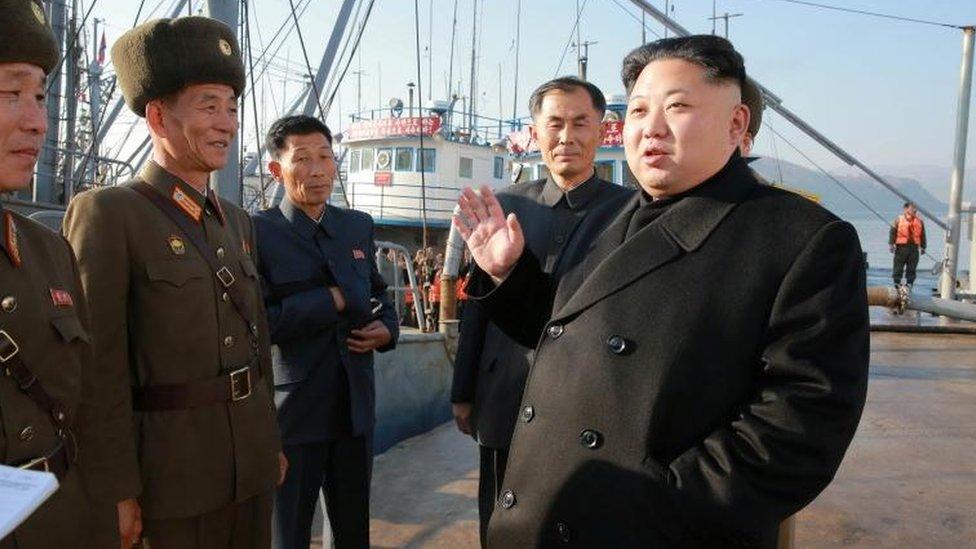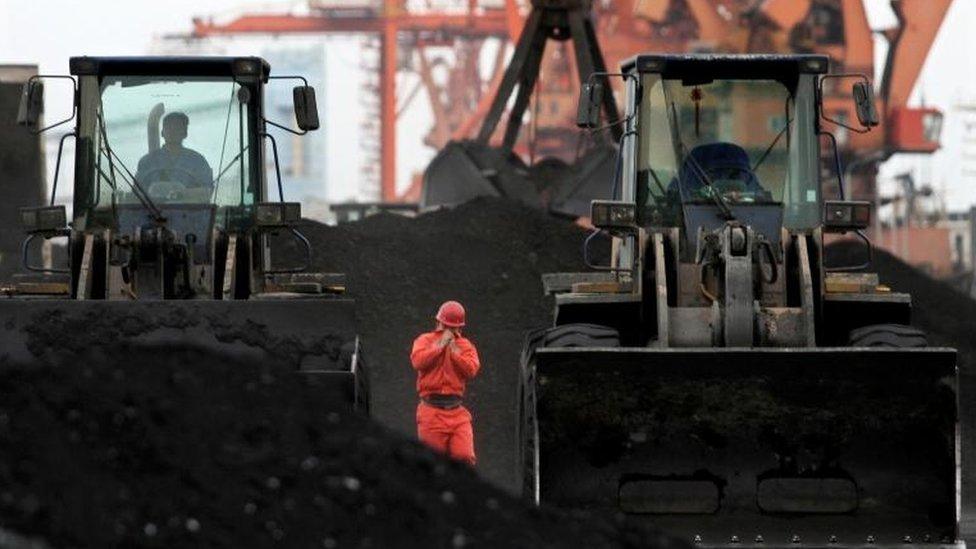Will the new sanctions on North Korea work?
- Published

There's a famous saying attributed to the founder of the Chinese Communist Party, Mao Zedong, that China and North Korea are as close as "lips are to teeth".
It is a relationship that these days may be closer to a case of gritting one's teeth rather than a smile, at least when it comes to trade.
As it is for most countries in Asia, China is North Korea's biggest trading partner. Except that of course that there's one major difference: North Korea would completely collapse without China's economic help.
That's why the US has been persuading Beijing to help the international community ensure that the new round of sanctions would hit North Korea where it hurts - cutting off access to Pyongyang's biggest customer is one way to send a powerful message.
The latest sanctions - imposed because of North Korea's nuclear programme - aims to cut its coal exports to China by 60%.
But there have been international sanctions and censure in place before, and despite those measures, China has continued to buy products from North Korea.
Chinese companies buy North Korean coal and textiles, for example, while at the same time selling food, arms and energy to Pyongyang. Partly this is out of an allegiance to an old but volatile ally, but also partly out of a desire to ensure the balance of power in the region is tipped in Beijing's favour.
Many analysts say China's refusal to play ball means that the sanctions strategy isn't working.
But as Gordon Chang, author of "The Coming Collapse of China" tells me, it's not that the sanctions on North Korea haven't been working - "it's that China doesn't get punished when it doesn't implement the sanctions".
While it's true that in recent years China hasn't been particularly strict about enforcing sanctions on North Korea, there's some evidence to show that trade between the two neighbours is slowing.

China is believed to be the only state that buys North Korean coal
China's trade with North Korea has been falling this year, some 13% from a year earlier according to data in May from the Korea International Trade Association, external.
Exports were down 15.6%, while Beijing's imports fell by 9.8%.
But Mr Chang points out that this is as much about the slowing of China's economy as it is about sanctions.
"Demand for commodities has slowed, and China is buying less of everything," he said. "And it's not that big a sacrifice for China - it doesn't really need this coal anyway."
In an article for the Conversation website,, external Kelvin Gray of the University of Sussex said that even if coal exports fall "one area where North Korea has kept its exports [to China] healthy is clothing".
Machines and raw materials are sold to North Korea from a Chinese company, the North Koreans provide the labour, (probably for a fraction of the price it would cost in China) and then the finished goods end up back in China.
The profits that the North Korean regime makes from this sort of trade is difficult to calculate - but it is almost certainly in the hundreds of millions.
It's a relationship that Beijing is unlikely to sever - and not for the usual argument that you hear about North Korean refugees flooding the Chinese border should the state collapse - at least, not according to Mr Chang.
"The first place North Koreans would go if the country were to collapse wouldn't be China, it would be South Korea," he said. "The real reason why China keeps the North Korean state alive economically is because it whenever Pyongyang fires off another test, Washington comes running to Beijing for help."
Mr Chang adds that this is a position China likes and wants to keep. And, he says, that unless Washington starts punishing Beijing for not enforcing these rules, this round of sanctions is unlikely to have much of an effect either.
- Published22 November 2016
- Published10 November 2016
- Published7 November 2016